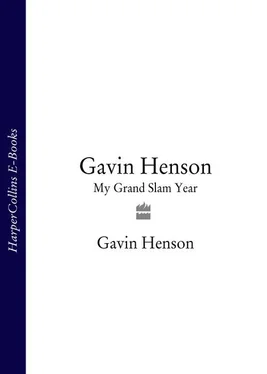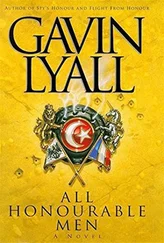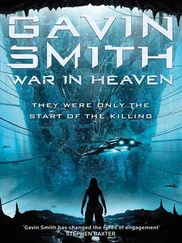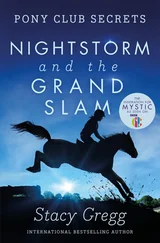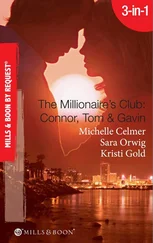But there was pressure coming onto us from another direction, too. It was coming from within. We knew we needed a big scalp to give us that confidence boost. It was crucial if we were going to go from being an improving side, in the second tier of world rugby, to a team who could not only rub shoulders with the big boys, but often beat them. Before the Six Nations championship had begun there were plenty of pundits who felt talk of a Welsh revival was just hype. Keith Wood, the former Ireland captain, said as much on TV, and so did Jeremy Guscott who laughed out loud in one interview when Jonathan Davies suggested Wales could be about to take some big scalps. I suppose you couldn’t really blame them. It’s hard to claim a genuine revival when you are basing it on matches that ended in defeat, even if those defeats were extremely narrow and accompanied by some superb performances. Heroic defeats may be exciting at the time, but they are always followed by massive feelings of frustration instead of a satisfying glow. You can dress it up, you can put a spin on it, you can talk about encouraging progress until you’re blue in the face; but a defeat is still a defeat.
We had suffered two such defeats in the previous autumn. The first was against South Africa when we came from a long way behind to lose by just a couple of points, 38–36. Then we suffered an even greater agony by being edged out by New Zealand by just a single point. That defeat, 26–25, was harder to take because we had not only been ahead but we had chances late on to win it. Both those results were very much in all the players’ minds going into the game with England. We were very proud of our performances against the Springboks and the All Blacks – and we felt the supporters’ pride – but we didn’t want to suffer like that again. We wanted to get that first big win under our belts because we all felt the confidence it would generate would provide huge momentum for the rest of the championship.
Although I felt the pressure, I wasn’t really nervous in the few days before the match. I felt confident and I wasn’t afraid to say so. The trouble is that some people take that as arrogance. I don’t see it like that. If someone asks you if you think you are going to win, what’s the point of saying no, or you’re not sure? What’s the point of pretending? I’ve never been into all that stuff when players offer no opinion of what the result of the game might be. For me, you might as well speak the truth, and the truth is that I felt we would beat England. If I build myself up, and my own team, then it makes me feel confident. It also puts pressure on me to go out and prove my point and I don’t mind that either. I’d rather that than spend time talking up how great England are and how they might do this or that to us. For me, that would just fill my head with doubts because I would be thinking about those opposition strengths instead of those of my own team. Anyway, in the days before the match the Welsh team management decided I should be put up before the media. I didn’t ask to be there. It was purely their call. But when I said that we would win it was taken as being a bit too cocky in some quarters. I didn’t care. I wanted to carry that complete self-belief with me onto the field on the Saturday and I wanted to put myself under pressure because that’s when I feel I respond. So that’s why I said it.
The journey from Wales’ team headquarters at the Vale of Glamorgan Hotel to the Millennium Stadium is always one of the highlights for me of any international match. But as this was my first Six Nations game and we were playing England, the old enemy, I took time to savour it and soak everything in. As the bus made its way to the centre of Cardiff there were thousands of supporters out on the streets even though it was still a few hours until kick-off. They all waved and shouted good luck when they realised it was the Wales team bus and as a player that makes you feel very special. It really gives me a hell of a buzz and I think it provides a massive advantage compared to the away team. By the time I got to the Millennium Stadium I felt ready to take on the world. The other boys were all in the same frame of a mind and we felt we couldn’t wait for the game to start.
It’s at this stage that some players get quite emotional about the whole occasion and what it means to them – especially as we were playing England. But I was determined not to let that happen to me. I just wanted to treat it as another game. I’m not one of those players who likes to use outward emotions to psyche themselves up. I prefer to be a bit more controlled and stay relaxed. I knew if I allowed myself to get caught up in the whole occasion then it would be a waste of energy – and I’d need every ounce of that.
The match began well for us and I managed to put in a solid early tackle on England’s Mark Cueto. Jason Robinson had thrown the ball into midfield, we chased up in a line and I got in a good hit on Cueto. That allowed me to settle. Suddenly I was able to concentrate harder and felt really into the game. I felt good about myself physically – strong. Then, Mathew Tait cut back inside towards me and I dumped him, although he managed to keep hold of the ball. It was his first touch in international rugby and I was aware of the crowd reacting to my tackle which gave me a big lift. Now, I felt settled and after another good tackle on Julian White I was flying. This is going to be okay, I thought. It’s going to be a good day.
Stephen Jones missed an early penalty, but within 10 minutes or so we scored a try through Shane Williams. I had a hand in the build-up but the crucial pass was the one delivered by Michael Owen, a lovely floated one that opened up enough space for Shane to dart over in the left corner. Michael is a wonderful rugby player and I really admire his handling skills and his vision, which so many other forwards just don’t have. It’s like having another back standing in the line so I had no hesitation about giving him the ball when he was calling for it. Stephen couldn’t add the conversion but we were 5–0 up and playing some good rugby. Nothing tight or anxious, just a nice flowing game, and the truth is that we should have got at least one more try in that opening 15 minutes or so. We had our chances.
Charlie Hodgson then struck a penalty before I put in another big tackle on Tait which got the crowd excited and led to all kinds of questions after the match. Mathew was an 18-year-old making his debut for England as a consequence of all those injury problems. Andy Robinson, the England coach, had paired Mathew in the centre with his Newcastle clubmate, Jamie Noon. Obviously, the thinking was that as they knew each other well the nerves might not feel as acute for Mathew as they might have been if he was next to a stranger.
I didn’t know much about Tait, although I had heard through the grapevine he had showed a lot of promise for Newcastle and our injured flanker Colin Charvis, a clubmate in the North-East, had singled him out before the game as an exciting prospect. Alun Carter, the Welsh team’s notational analyst, and the man in charge of finding video footage on all our opponents, had done well to find me some clips of Tait which I watched on the Friday. I could see that Tait was a quality player with quick feet and good hands. I also couldn’t help thinking about his age. Eighteen! I was still used to being described as a youngster myself and yet I had turned 23 at the start of that week. Here was a kid five years younger than me. I’ve always had a strange feeling about coming up against players younger than me. It creates an extra little competitive edge in my mind. It’s almost as if they are a bit of a threat to me and at the back of my mind a little voice is telling me to put them in their place. Or at least try to put them in their place. I suppose it’s a desire to try and set the standards rather than allow someone new to come along and set them for you.
Читать дальше
